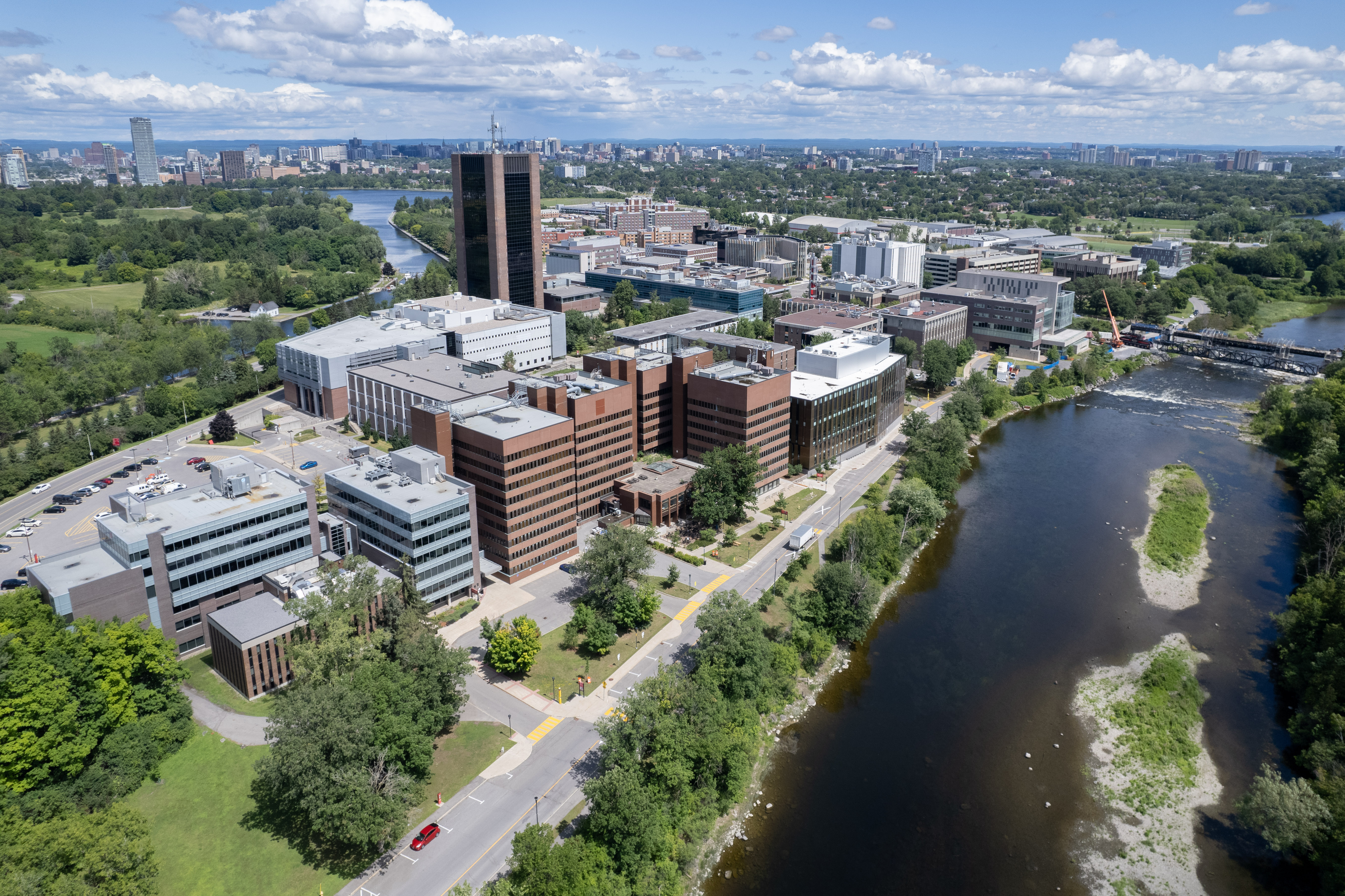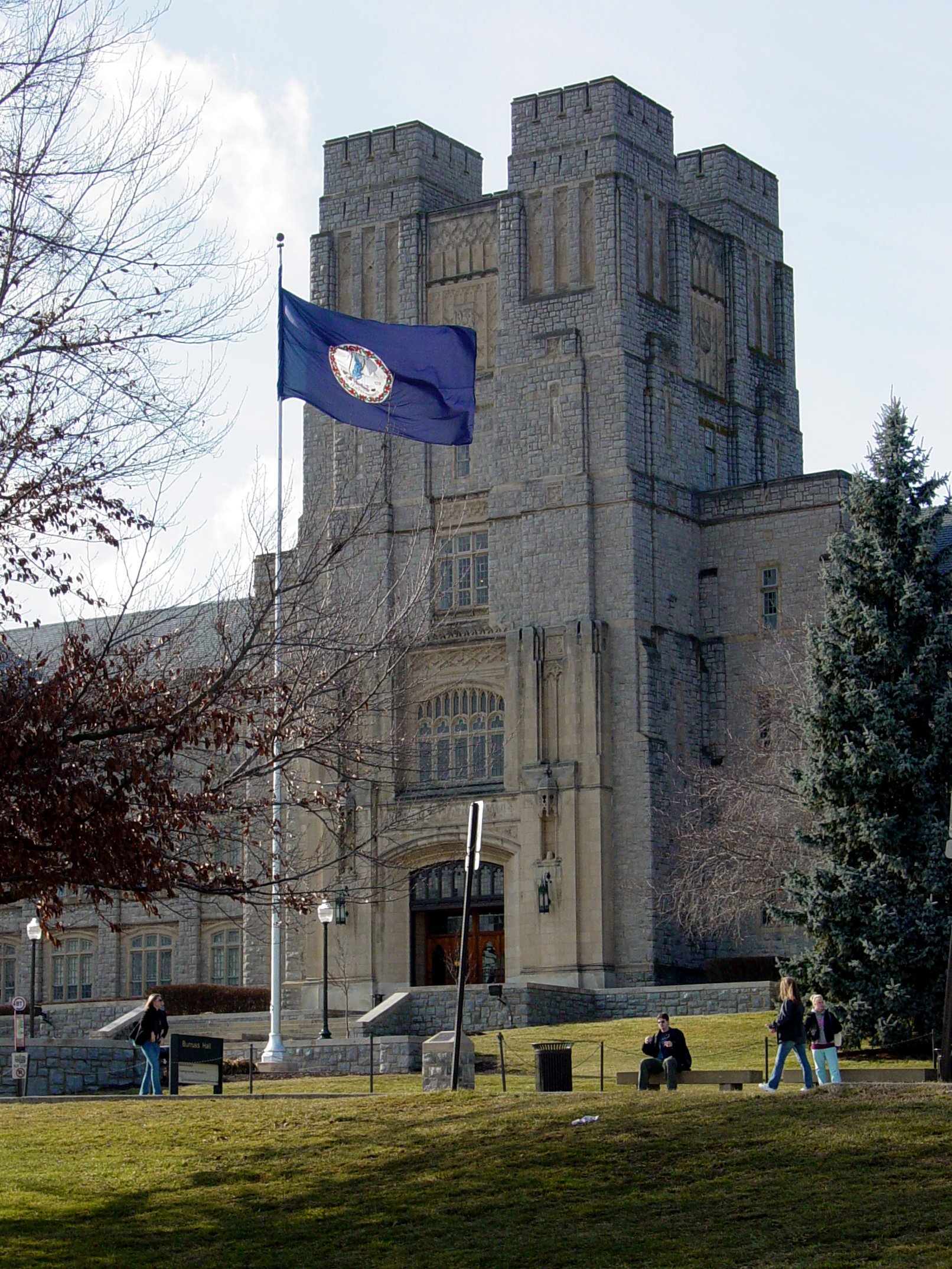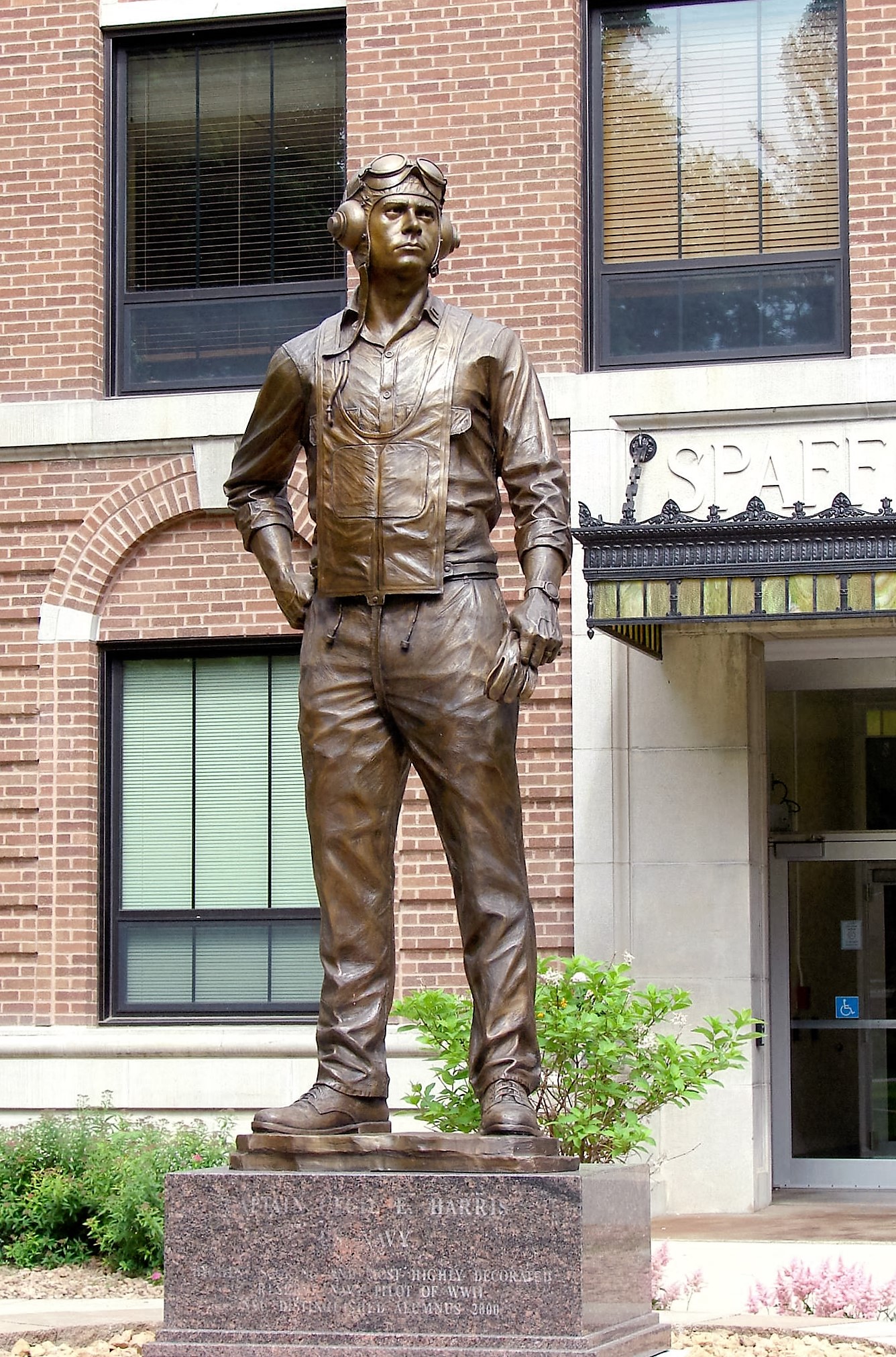|
Don Cozzetto
Dr. Don Cozzetto is a Canadian academic and university administrator. He was born and raised in Rossland, British Columbia but has spent most of his career in the United States. He received his B.A. from Notre Dame University College in Nelson, British Columbia, his M.S. from Carleton University in Ottawa, and his Ph.D. in Public Policy and Administration from Virginia Polytechnic Institute and State University. He specializes in public administration, human resource management, and aboriginal government. Prior to beginning his academic career, he spent ten years working for housing corporations in the Yukon and the Northwest Territories. From 1999-2003 he was Vice President for Academic Affairs of Northern State University in South Dakota, where he served the following year as Interim President. From 2006-07-01 to early June 2008 he was President and Vice-Chancellor of the University of Northern British Columbia The University of Northern British Columbia (UNBC) is a small, resea ... [...More Info...] [...Related Items...] OR: [Wikipedia] [Google] [Baidu] |
Rossland, British Columbia
Rossland is in the West Kootenay region of south central British Columbia. High in the Monashee Mountains, the city lies immediately east of the intersections of BC highways British Columbia Highway 3B, 3B and British Columbia Highway 22, 22. The facilities provide a winter base for the nearby multi-peak skiing, ski hills of the Red Mountain Resort. In the non-winter months Rossland is frequented by mountain bikers, with golf and fishing options nearby as well. Name origin The Sinixt First Nation called the Rossland area ''kEluwi'sst'' or ''kmarkn''. As to the word meanings, suggestions have included an "important temporary camp" or "up in the hills" for the former, and "smooth top" for the latter, referring to Red Mountain. Once mining claims were staked, the area became known as Trail Creek camp, the creek name derived from the Dewdney Trail. The final naming acknowledged Ross Thompson, who Preemption (land), preempted 160 acres in 1892. He subdivided the land into lots in 1894 ... [...More Info...] [...Related Items...] OR: [Wikipedia] [Google] [Baidu] |
Notre Dame University College
Notre Dame University College was a private university in Nelson, British Columbia, Canada. It was established in 1950 by the Roman Catholic diocese of Nelson and opened with twelve students. In 1951 Notre Dame became affiliated as a junior college with Gonzaga University in Spokane, Washington, United States, and in 1961 it became affiliated with St. Francis Xavier University in Antigonish, Nova Scotia. In 1963, it was chartered as a private four-year university by the Province of British Columbia. Shortly thereafter, it adopted the name Notre Dame University of Nelson (NDU). At the height of its operation, it enrolled 2,000 students in a variety of academic disciplines. The university granted both Major B.A. Degrees, with intensive work in one subject area, and B.A. Degrees with Concentrations in two subject areas. It hosted a wide range of foreign students, including many from Hong Kong, Indonesia, and the United States. Dr. Hugh L. Keenleyside, a noted Canadian civil servant ... [...More Info...] [...Related Items...] OR: [Wikipedia] [Google] [Baidu] |
Nelson, British Columbia
Nelson is a city located in the Selkirk Mountains on the West Arm of Kootenay Lake in the British Columbia Interior, Southern Interior of British Columbia, Canada. Known as "The Queen City", and acknowledged for its impressive collection of restored heritage buildings from its glory days in a regional silver rush, Nelson is one of the three cities forming the commercial and population core of the West Kootenay region, the others being Castlegar, British Columbia, Castlegar and Trail, British Columbia, Trail. The city is the seat of the Regional District of Central Kootenay, British Columbia, Regional District of Central Kootenay. It is represented in the Legislative Assembly of British Columbia, provincial legislature by the riding of Nelson-Creston, and in the Parliament of Canada by the riding of Kootenay—Columbia. History Founding The western Kootenay region of British Columbia, where the city of Nelson is situated, is part of the traditional territories of the Sinixt (or Lak ... [...More Info...] [...Related Items...] OR: [Wikipedia] [Google] [Baidu] |
Carleton University
Carleton University is an English-language public research university in Ottawa, Ontario, Canada. Founded in 1942 as Carleton College, the institution originally operated as a private, non-denominational evening college to serve returning World War II veterans. Carleton was chartered as a university by the provincial government in 1952 through ''The Carleton University Act,'' which was then amended in 1957, giving the institution its current name. The university is named for the now-dissolved Carleton County, which included the city of Ottawa at the time the university was founded. Carleton County, in turn, was named in honour of Guy Carleton, 1st Baron Dorchester, who was Governor General of The Canadas from 1786 to 1796. The university moved to its current campus in 1959, growing rapidly in size during the 1960s as the Ontario government increased support for post-secondary institutions and expanded access to higher education. Carleton offers a diverse range of academic program ... [...More Info...] [...Related Items...] OR: [Wikipedia] [Google] [Baidu] |
Ottawa
Ottawa (, ; Canadian French: ) is the capital city of Canada. It is located at the confluence of the Ottawa River and the Rideau River in the southern portion of the province of Ontario. Ottawa borders Gatineau, Quebec, and forms the core of the Ottawa–Gatineau census metropolitan area (CMA) and the National Capital Region (NCR). Ottawa had a city population of 1,017,449 and a metropolitan population of 1,488,307, making it the fourth-largest city and fourth-largest metropolitan area in Canada. Ottawa is the political centre of Canada and headquarters to the federal government. The city houses numerous foreign embassies, key buildings, organizations, and institutions of Canada's government, including the Parliament of Canada, the Supreme Court, the residence of Canada's viceroy, and Office of the Prime Minister. Founded in 1826 as Bytown, and incorporated as Ottawa in 1855, its original boundaries were expanded through numerous annexations and were ultimately ... [...More Info...] [...Related Items...] OR: [Wikipedia] [Google] [Baidu] |
Virginia Polytechnic Institute And State University
Virginia Tech (formally the Virginia Polytechnic Institute and State University and informally VT, or VPI) is a public land-grant research university with its main campus in Blacksburg, Virginia. It also has educational facilities in six regions statewide, a research center in Punta Cana, Dominican Republic, and a study-abroad site in Riva San Vitale, Switzerland. Through its Corps of Cadets ROTC program, Virginia Tech is a senior military college. Virginia Tech offers 280 undergraduate and graduate degree programs to some 34,400 students; as of 2015, it was the state's second-largest public university by enrollment. It manages a research portfolio of $522 million, placing it among the top 50 universities in the U.S. for total research expenditures, top 25 in computer and information sciences and top 10 in engineering, with the latter two the highest rankings in the state. It is classified among "R1: Doctoral Universities – Very high research activity". VT has produced tw ... [...More Info...] [...Related Items...] OR: [Wikipedia] [Google] [Baidu] |
Yukon
Yukon (; ; formerly called Yukon Territory and also referred to as the Yukon) is the smallest and westernmost of Canada's three territories. It also is the second-least populated province or territory in Canada, with a population of 43,964 as of March 2022. Whitehorse, the territorial capital, is the largest settlement in any of the three territories. Yukon was split from the North-West Territories in 1898 as the Yukon Territory. The federal government's ''Yukon Act'', which received royal assent on March 27, 2002, established Yukon as the territory's official name, though ''Yukon Territory'' is also still popular in usage and Canada Post continues to use the territory's internationally approved postal abbreviation of ''YT''. In 2021, territorial government policy was changed so that “''The'' Yukon” would be recommended for use in official territorial government materials. Though officially bilingual (English and French), the Yukon government also recognizes First Natio ... [...More Info...] [...Related Items...] OR: [Wikipedia] [Google] [Baidu] |
Northwest Territories
The Northwest Territories (abbreviated ''NT'' or ''NWT''; french: Territoires du Nord-Ouest, formerly ''North-Western Territory'' and ''North-West Territories'' and namely shortened as ''Northwest Territory'') is a federal territory of Canada. At a land area of approximately and a 2016 census population of 41,790, it is the second-largest and the most populous of the three territories in Northern Canada. Its estimated population as of 2022 is 45,605. Yellowknife is the capital, most populous community, and only city in the territory; its population was 19,569 as of the 2016 census. It became the territorial capital in 1967, following recommendations by the Carrothers Commission. The Northwest Territories, a portion of the old North-Western Territory, entered the Canadian Confederation on July 15, 1870. Since then, the territory has been divided four times to create new provinces and territories or enlarge existing ones. Its current borders date from April 1, 1999, when the ... [...More Info...] [...Related Items...] OR: [Wikipedia] [Google] [Baidu] |
Northern State University
Northern State University (NSU) is a public university in Aberdeen, South Dakota. NSU is governed by the South Dakota Board of Regents and offers 45 bachelor's degrees, 53 minors, six associate degrees, 16 pre-professional programs, 23 certificates and 10 graduate degrees. History Aberdeen, South Dakota, had rapid population growth during the late 19th century, leading the citizens of northern South Dakota to push for a government-funded institute of higher learning. In the 1885 legislative session, a bill was passed creating what was then known as the University of Central Dakota in the small town of Ordway, South Dakota. Funds were approved for the school in the 1887 legislative session,Bartusis, Mark C. ''Northern State University: The First Century 1901-2000.'' Aberdeen, SD: Northern State University Press, 2001. but Governor Louis K. Church vetoed the bill for financial reasons and statewide lack of support; it took a few more decades for the school to become a reality. ... [...More Info...] [...Related Items...] OR: [Wikipedia] [Google] [Baidu] |
South Dakota
South Dakota (; Sioux language, Sioux: , ) is a U.S. state in the West North Central states, North Central region of the United States. It is also part of the Great Plains. South Dakota is named after the Lakota people, Lakota and Dakota people, Dakota Sioux Native Americans in the United States, Native American tribes, who comprise a large portion of the population with nine Indian reservation, reservations currently in the state and have historically dominated the territory. South Dakota is the List of U.S. states and territories by area, seventeenth largest by area, but the List of U.S. states and territories by population, 5th least populous, and the List of U.S. states and territories by population density, 5th least densely populated of the List of U.S. states, 50 United States. As the southern part of the former Dakota Territory, South Dakota became a state on November 2, 1889, simultaneously with North Dakota. They are the 39th and 40th states admitted to the union; Pr ... [...More Info...] [...Related Items...] OR: [Wikipedia] [Google] [Baidu] |
University Of Northern British Columbia
The University of Northern British Columbia (UNBC) is a small, research-intensive public university in British Columbia, Canada. The main campus is located in Prince George, with additional campuses located in Prince Rupert, Terrace, Quesnel, and Fort St. John. Because of its northern latitude, UNBC is a member of the University of the Arctic. In the 2020–21 academic year, 4,253 students were enrolled at UNBC. In 2022, ''Maclean's'' magazine ranked UNBC as the number one university of its size in Canada, in the Primarily Undergraduate category. UNBC also finished first in the rankings in 2015 and 2016 and routinely finishes in the top three in its category. In 2023, UNBC placed second in its category. In 2007, the university obtained the trademark for "Canada's Green University". History In response to a grass-roots movement spearheaded by the Interior University Society, the Legislative Assembly of British Columbia established the university when it passed Bill 40, the Univer ... [...More Info...] [...Related Items...] OR: [Wikipedia] [Google] [Baidu] |
Canadian University And College Chief Executives
Canadians (french: Canadiens) are people identified with the country of Canada. This connection may be residential, legal, historical or cultural. For most Canadians, many (or all) of these connections exist and are collectively the source of their being ''Canadian''. Canada is a multilingual and multicultural society home to people of groups of many different ethnic, religious, and national origins, with the majority of the population made up of Old World immigrants and their descendants. Following the initial period of French and then the much larger British colonization, different waves (or peaks) of immigration and settlement of non-indigenous peoples took place over the course of nearly two centuries and continue today. Elements of Indigenous, French, British, and more recent immigrant customs, languages, and religions have combined to form the culture of Canada, and thus a Canadian identity. Canada has also been strongly influenced by its linguistic, geographic, and ec ... [...More Info...] [...Related Items...] OR: [Wikipedia] [Google] [Baidu] |




